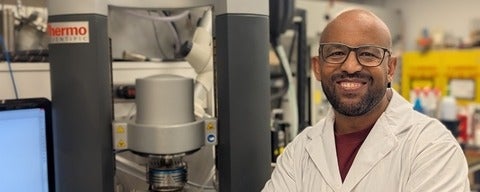A greener future for personal hygiene products
A chemical engineering research group led by Professor Tizazu Mekonnen has developed an eco-friendly super absorbent hydrogel that could dramatically reduce the environmental impact of personal hygiene products like diapers, menstrual pads and tampons.
Unlike current products, which take centuries to break down, this new material degrades harmlessly in soil within three months.
In North America, billions of disposable diapers end up in landfills annually, according to the U.S. Environmental Protection Agency (EPA) taking up to 450 years to decompose.
Around 1.8 billion women menstruate monthly, and most single-use menstrual pads and tampons also end up in landfills. These products are about 90 per cent plastic and can take up to 500 years to break down, according to the United Nations Environment Programme.








